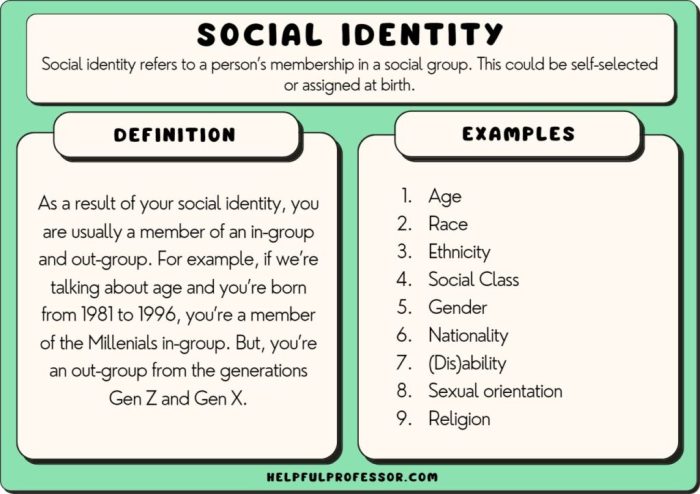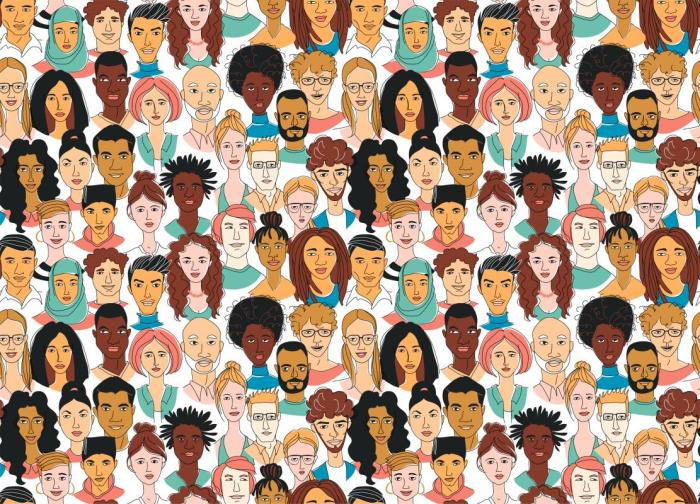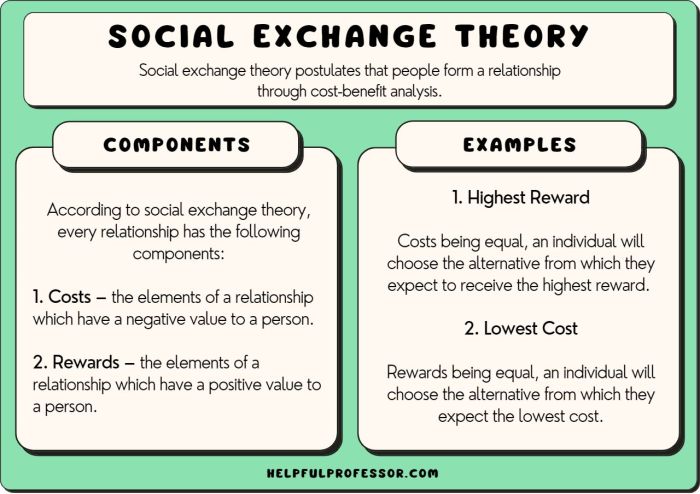Which of these is true about social identity groups everfi? Embark on an intellectual journey to unravel the profound impact of social identity groups on our behavior, values, and societal fabric. This discourse delves into the intricate interplay of social comparison, norms, and values, shedding light on the multifaceted nature of social identity and its implications for individuals and society.
Social identity groups, as we shall explore, are not mere aggregations of individuals but rather dynamic entities that shape our sense of self, influence our actions, and contribute to the formation of social bonds. Understanding the mechanisms underlying these groups is crucial for navigating the complexities of human interaction and fostering a more inclusive and harmonious society.
Social Identity Groups and their Significance: Which Of These Is True About Social Identity Groups Everfi

Social identity groups are social categories that individuals identify with and derive a sense of belonging and self-concept. These groups can be based on various factors such as age, gender, race, ethnicity, religion, nationality, occupation, or shared interests.
Social identity groups play a significant role in shaping individual behavior. They provide individuals with a sense of belonging and support, and they influence their attitudes, values, and actions. Social identity groups can also shape the way individuals perceive themselves and others, and they can influence their interactions with people from different groups.
Factors Influencing Social Identity Formation, Which of these is true about social identity groups everfi
The formation of social identity groups is influenced by several factors, including:
- Social comparison:Individuals compare themselves to others to evaluate their own social status and identity.
- Social norms and values:The norms and values of a society can influence the formation of social identity groups.
- Socialization:Individuals learn about social identity groups through their interactions with others.
Functions of Social Identity Groups
Social identity groups serve various functions, including:
- Sense of belonging and support:Social identity groups provide individuals with a sense of belonging and support.
- Social cohesion:Social identity groups can promote social cohesion by providing a shared sense of identity and purpose.
- Social change:Social identity groups can be a catalyst for social change by mobilizing individuals to work towards common goals.
Challenges and Consequences of Social Identity Groups
While social identity groups can have positive functions, they can also pose challenges and have negative consequences, including:
- Prejudice and discrimination:Social identity groups can lead to prejudice and discrimination against individuals from different groups.
- Social inequality:Social identity groups can perpetuate social inequality by creating barriers to access resources and opportunities.
- Intergroup conflict:Social identity groups can lead to intergroup conflict, which can have negative consequences for both individuals and society as a whole.
FAQ Overview
What is the significance of social identity groups?
Social identity groups provide a sense of belonging, support, and social cohesion. They shape individual behavior, values, and beliefs, influencing our perceptions of ourselves and others.
How do social identity groups influence individual behavior?
Social identity groups influence individual behavior through social comparison, conformity to group norms, and the internalization of group values. They can motivate individuals to act in ways that align with group expectations and goals.
What are the potential challenges and consequences of social identity groups?
Social identity groups can lead to prejudice, discrimination, and social inequality. They can also contribute to intergroup conflict and hinder communication and understanding between different groups.

